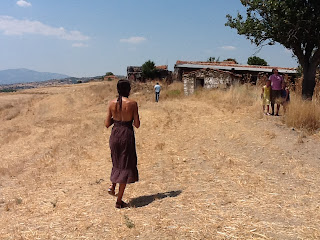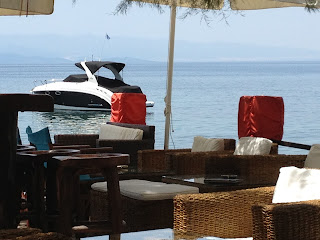We know life is hard, the human condition includes suffering and despair, and our brains aren't interested in making us happy, only in ensuring we survive? And that life is difficult and absurd with fleeting moments of bliss?
Cool.
Even so, every now and then comes a reminder that, during times not marred by horrible circumstances, it is indeed possible to choose to be happy, or at least not to be miserable.
Professor Ed Diener is one of the founders of positive psychology and a leading researcher into happiness and well-being. He is profiled in The Age today in 'The Happy Medium' (Michael Short, The Zone).
It's not really news to read that "Happiness is caused by relationships, goals and habits –and not by lots of money", that "happy people are healthier", and that "one of the best ways to be happy is, paradoxically, to not worry too much about being happy, but to focus instead on a goal".
We generally already know that "happiness" (in the sense of contentment or fulfillment), is a combination of a positive outlook, good relationships, having a purpose or goal and/or skill, and acceptance of circumstances.
But even if most of that is fairly familiar to us now, what I liked about this article was the reminder that we can and should seek these things - even while we know, of course, that awful circumstances can and do prevent happiness, and life can be cruel and unfair. But for most of us, life is a combination of good times and bad, so we do have the ability to seek contentment in some form.
The other thing I liked was this quick test to measure how happy you are (in case you are not sure):
Quick happiness test suggested by Michael Short and Ed Diener:
It's this: ask yourself or someone else what are the top 10 things you like to do. Then ask when you last did those things. While there can be compelling reasons why we are not doing what we like - caring for someone, investing time in study or other intensive projects - it's often the case unhappiness is caused by neglecting to do these things. Crucially, almost without exception those lists contain an overwhelming majority of pastimes that do not require money.
Read more: http://www.theage.com.au/lifestyle/life/the-happy-medium-20130721-2qcrg.html#ixzz2ZlwGJKg9
For example, if you were me your ten (or eleven) things might look something like this:
- walking
- reading
- writing
- art
- talking with my kids - especially ideas, theories, how people are, how life is, etc
- cartoons / humour
- family gatherings
- coffee/dinner with friends
- spending time with or watching animals
- sitting on grass
- looking at the sky / stars
I do about half of these often, and the rest quite rarely, though I used to do them often.
It's an interesting point.
Personally I think being "happy" comes from relationships, having enough money so that life is not constantly stressful, being busy without being overly stretched, doing a job you don't hate, and having enough room/time for some hobbies. Sometimes, with luck, we may even manage all those things at once.
There's not much else. We're animals seeking to live, accumulate resources, and if we want to, to procreate. Everything else is a bonus.
What do you think about the happiness test?
 |
| maen_cg/FreeDigitalPhotos.net |



























































